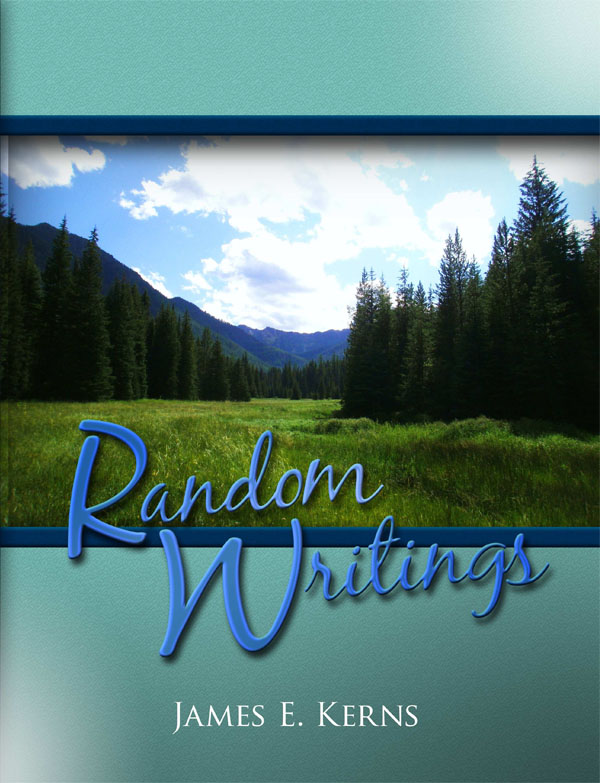Beautiful Writings
Some writings are beautiful—masterpieces of construction as elegant as the best painting or sculpture. The author selects the perfect words, and places them in just the right setting to impart the mood and thought that he desires. All such masterpieces, I believe, are actually authored by the Lord, and written under inspiration imparted to his servants here on earth. All of them aren’t prophets, although many are.
The writing that inspires this thought was written by a 34-year-old former farm boy who had virtually no education. I’ll quote those lines, and then follow them with the other writings that I consider most exquisite.
—Joseph Smith, Doctrine and Covenants 121:45-46
“Let thy bowels also be full of charity towards all men, and to the
household of faith, and let virtue garnish thy thoughts unceasingly; then
shall thy confidence wax strong in the presence of God; and the doctrine
of the priesthood shall distil upon thy soul as the dews from heaven.
“The Holy Ghost shall be thy constant companion, and thy scepter
an unchanging scepter of righteousness and truth; and thy dominion shall
be an everlasting dominion, and without compulsory means it shall flow
unto thee forever and ever.”
—David, 23rd Psalm
“The Lord is my shepherd; I shall not want.
He maketh me to lie down in green pastures;
He leadeth me beside the still waters.
He restoreth my soul:
He leadeth me in the paths of righteousness for his name’s sake.
Yea, though I walk through the valley of the shadow of death,
I will fear no evil: for thou are with me;
Thy rod and thy staff they comfort me.
Thou preparest a table before me in the presence of mine enemies:
Thou anointest my head with oil;
My cup runneth over.
Surely goodness and mercy shall follow me all the days of my life:
And I will dwell in the house of the Lord for ever.”
—Paul, 1 Corinthians chapter 13.
“Though I speak with the tongues of men and of angels, and have
not charity, I am become as sounding brass, or a tinkling cymbal.
And though I have the gift of prophecy, and understand all mysteries,
and all knowledge; and though I have all faith, so that I could remove mountains,
and have not charity, I am nothing.
And though I bestow all my goods to feed the poor, and though I give
my body to be burned, and have not charity, it profiteth me nothing.
Charity suffereth long, and is kind; charity envieth not;
charity vaunteth not itself, is not puffed up,
Doth not behave itself unseemly, seeketh not her own,
is not easily provoked, thinketh no evil;
Rejoiceth not in iniquity, but rejoiceth in the truth;
Beareth all things, believeth all things,
hopeth all things, endureth all things.
Charity never faileth: but whether there be prophecies, they shall fail;
whether there be tongues, they shall cease; whether there be knowledge,
it shall vanish away.
For we know in part, and we prophesy in part.
But when that which is perfect is come,
then that which is in part shall be done away.
When I was a child, I spake as a child, I understood as a child,
I thought as a child: but when I became a man, I put away childish things.
For now we see through a glass, darkly; but then face to face:
now I know in part; but then shall I know even as also I am known.
And now abideth faith, hope, charity, these three;
but the greatest of these is charity.”
—William Shakespeare, 29th sonnet
“When in disgrace with fortune and men’s eyes,
I all alone beweep my outcast state,
And trouble deaf Heaven with my bootless cries,
And look upon myself, and curse my fate,
Wishing me like to one more rich in hope,
Featur’d like him, like him with friends possess’d,
Desiring this man’s art, and that man’s scope,
With what I most enjoy contented least;
Yet in these thoughts myself almost despising,
Haply I think on thee,--and then my state
(Like to the lark at break of day arising
From sullen earth) sings hymns at heaven’s gate;
For thy sweet love remember’d such wealth brings,
That then I scorn to change my state with kings.”
—Robert Frost, Stopping by Woods on a Snowy Evening
Whose woods these are I think I know.
His house is in the village though;
He will not see me stopping here
To watch his woods fill up with snow.
My little horse must think it queer
To stop without a farmhouse near
Between the woods and frozen lake
The darkest evening of the year.
He gives his harness bells a shake
To ask if there is some mistake.
The only other sound’s the sweep
Of easy wind and downy flake.
The woods are lovely, dark, and deep,
But I have promises to keep,
And miles to go before I sleep,
And miles to go before I sleep.
—Robert Frost, The Road Not Taken
Two roads diverged in a yellow wood,
And sorry I could not travel both
And be one traveler, long I stood
And looked down one as far as I could
To where it bent in the undergrowth;
Then took the other, as just as fair,
And having perhaps the better claim,
Because it was grassy and wanted wear;
Though as for that the passing there
Had worn them really about the same,
And both that morning equally lay
In leaves no step had trodden black.
Oh, I kept the first for another day!
Yet knowing how way leads on to way,
I doubted if I should ever come back.
I shall be telling this with a sigh
Somewhere ages and ages hence:
Two roads diverged in a wood, and I—
I took the one less traveled by,
And that has made all the difference.
